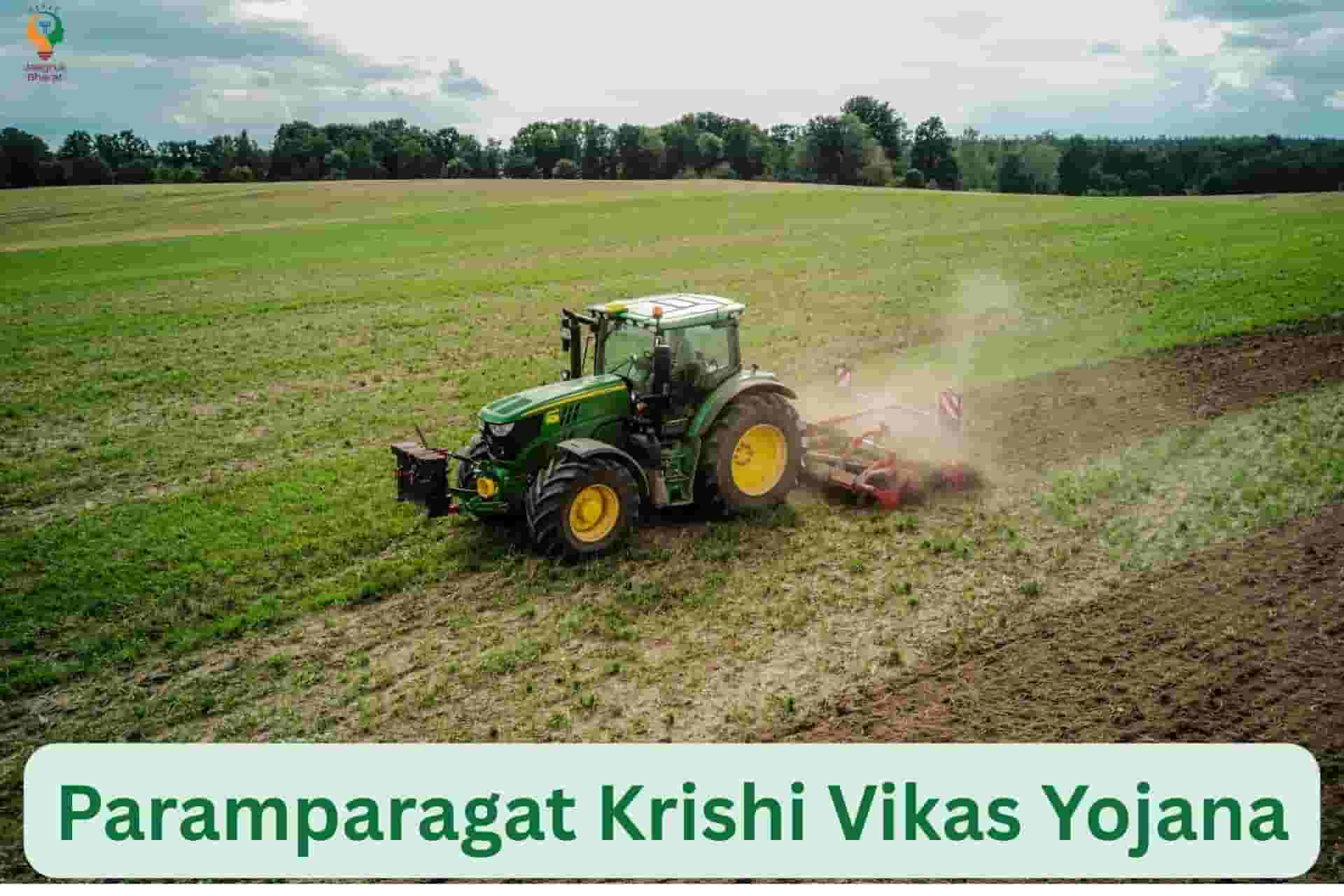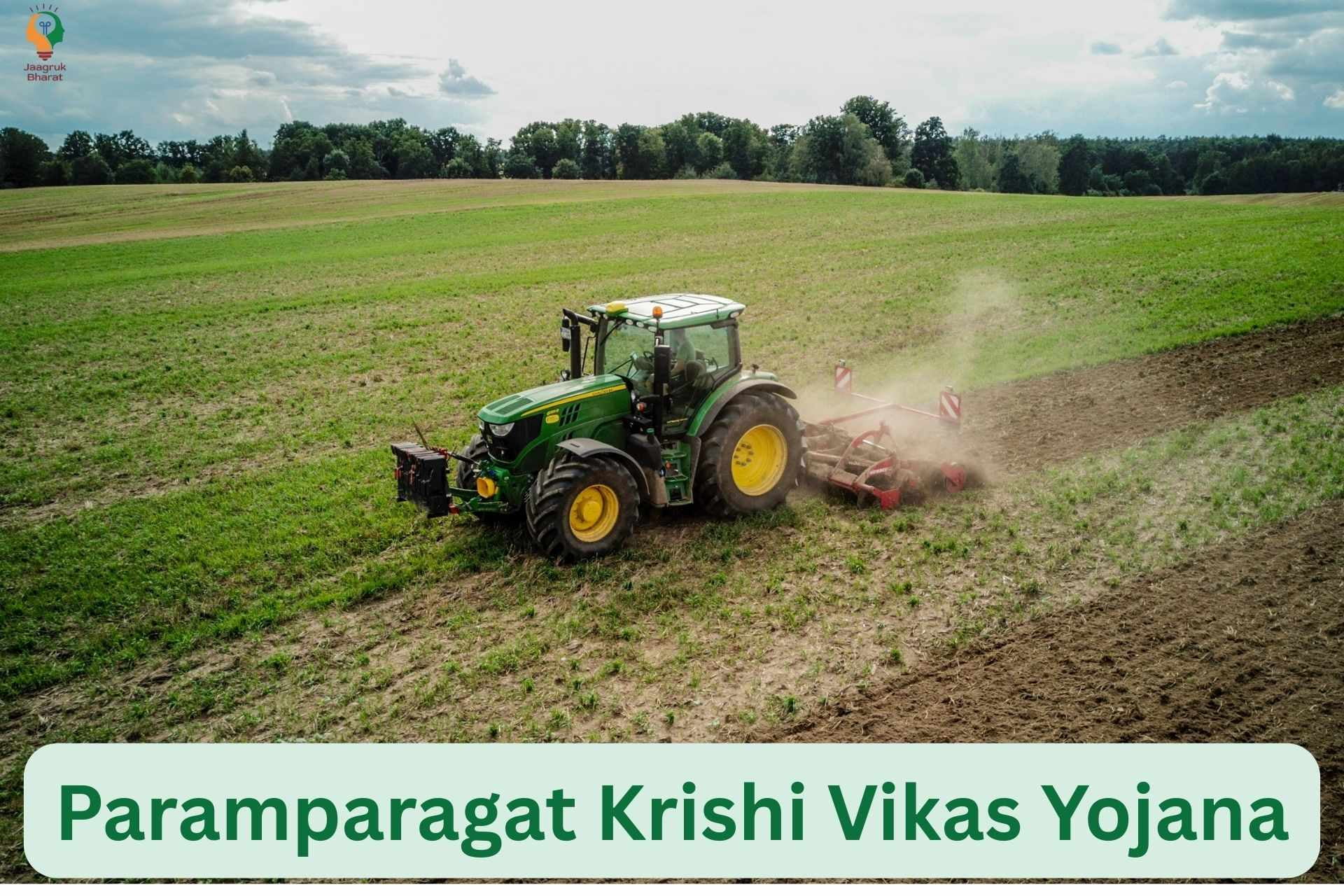What Are The Paramparagat Krishi Vikas Yojana (PKVY): A Comprehensive Overview
Updated: 13-10-2025 at 3:30 PM
2k


Paramparagat Krishi Vikas Yojana (PKVY) encourages organic farming through a cluster-based approach. Clusters are used to implement this government scheme in which several farmers or hordes (clusters) adopt organic farming. In this article, we’ll explain how the system works, what this Sarkari yojana does, the benefits, and the process of Krishi Vikas Yojana online registration through the Paramparagat Krishi Vikas Yojana official website.
Overview
The table below summarises some key details about the PKVY scheme that one should know.
| Name of the scheme | PKVY |
|---|---|
| Full form | Paramparagat Krishi Vikas Yojana |
| Launched by | Indian government |
| PKVY scheme launch date | 2015 |
| Objective | The PKVY scheme will promote organic farming and, hence, promote sustainable farming methods |
Read More: Ration Card
What Is The Paramparagat Krishi Vikas Yojana (PKVY)?
The government of India announced the Paramparagat Krishi Vikas Yojana (PKVY), and the PKVY scheme launch date was back in the year 2015. It is a key part of the National Mission on Sustainable Agriculture (NMSA). The government scheme covers organic farming operations throughout India.
Read More: Aadhaar Card
At its core, the PKVY scheme will promote organic farming. As a result, organic substitutes will be used to replace inorganic substances. Meanwhile, PKVY increases farmers’ incomes and creates a more sustainable form of farming.
Twenty-first-century agriculture should focus on monoculture plantings as much as possible.
As part of its mission, Krishi Vikas aims to achieve this in two phases. In the first step, farmland should be divided into groups of 100-150 acres. Each group must own 100-150 acres. Secondly, these owners will practice traditional farming practices for many years together without any chemical fertilisation.
Read More: Ayushman Card
Why Do We Need the Paramparagat Krishi Vikas Yojana (PKVY)?
India has grown from a consumption of 28.1 kg per hectare in 1970 to a catastrophic figure of 135.8 kg per hectare. This inferno has had unprecedented crop yields while causing massive environmental damage!
Pesticide use is on the rise, with over 67,000 metric tons used annually to contaminate food, water, and soil. This dependence on synthetic products has its price.
In terms of health, more than half of non-organic farmers suffer from skin and lung diseases, compared to only up to 14% of organic farmers, and almost half of them also link this to cancer.
Added to this are the environmental impacts of chemical-intensive farming, such as greenhouse gas emissions and water pollution.
Read More: Pan Card
Such problems can only be addressed by promoting organic practices through government yojana like Krishi Vikas at a planned and commercial level. PKVY aims to promote soil health, improve the socio-economic status of farmers by linking them to markets and minimise the risks associated with improper use of synthetic inputs.
Benefits Of Paramparagat Krishi Vikas Yojana (PKVY)
There are a lot of benefits to farmers and agriculture overall that come from the Paramparagat Krishi Vikas Yojana (PKVY).
Environmental Benefits
With the help of this program, farmers can decrease their reliance on artificial pesticides and fertilisers. In addition, it improves soil well-being by increasing organic matter quantity, encouraging microbial activity, improving soil structure and lessening environmental pollutants. As a result, the availability of water increases for plants and soil erosion decreases, which leads to more sustainable farming techniques.
Economic Benefits
With PKVY, farmers who are interested in organic farming can receive financial assistance. The support includes buying organic inputs, training, certification, and promotional expenses. It increases farmers’ incomes by reducing both production costs and output on organic farms. As a result, organic products can sell well and become more popular because of their health benefits (e.g., no chemical residues) and eco-friendliness.
Social Benefits
By clustering farmers, PKVY has been able to create a sense of community. By working together in clusters, farmers can exchange expertise, resources, and methods that are most effective. As a result, all farmer groups can develop and grow. Through the use of traditional farming methods, we are not only preserving indigenous agricultural culture but also bringing back traditional methods.
Implementation And Structure Of PKVY
The implementation structure for PKVY, as mentioned in the PKVY scheme guidelines, is as follows:
-
A decentralised process is followed to implement PKVY, which involves state and farmer groups.
-
In this strategy, a systematic approach is used. Upon cluster formation, every cluster is subjected to a meticulous plan consisting of workshops, exposure tours, and organic input production units.
-
Moreover, the program is affordable and accessible to marginal and smaller farmers. It is a great way to encourage farmers to adopt organic practices.
Eligibility Criteria: Who Can Apply For The Paramparagat Krishi Vikas Yojana (PKVY)
Applicants need to fulfil the eligibility criteria for the scheme as laid out in the PKVY scheme guidelines. The eligibility criteria are laid down below for one’s reference:
-
Clusters of Farmers - Cluster-capable farmers are expected to be targeted by the program. Farmers should form clusters of at least 50 people. A minimum of 50 acres of space is also required
-
Small and marginal farmers - This scheme aims at attracting marginal and small farmers who may not be able to utilise natural farming.
-
Institutions and Organisations - NGOs, FPOs, and other organisations can also participate in the scheme to promote the use of agricultural methods.
How To Apply For PKVY Registration?
For farmers who are eligible for Paramparagat Krishi Vikas Yojana (PKVY), a streamlined application process has been established. Please note that there is no PKVY scheme apply online process as the application process has to go through the traditional offline methods.
Step 1: Cluster Formation
Clustering is a step in the application process. The programme is open to an organisation with 50 participants and an area of at least 50 acres.
Step 2 - Coordinating With Regional Council
After forming the cluster, Farmers need to contact with state region council. The regional councils will accept the proposal and formulate the Annual Action Plan (AAP)
Step 3: Candidates Apply
Application forms can be sent to regional councils in clusters. Each state must submit an unconsolidated annual action plan. In addition, the plan lists the planned actions to be carried out within every PKVY Implementation Region, in addition to anticipated outcomes and budgetary demands.
Step 4: Approval And Disbursement Of Funds
The Ministry of Agriculture and Farmers Welfare reviews the regional councils’ annual Action Plans annually. The cash is then released to states, which then distribute it to local councils and farmers
Step 5: Active Implementation Of Activities
As part of the PKVY program, funds have been set aside for various components at the regional and local council levels. As well as providing ongoing support, the councils ensure that organic farming practices are implemented responsibly.
Step 6: Marketing And Certification
PKVY includes the PGS certification. Certification of organic products is performed in the PGS process, and farmers are prepared for the certification process. Using this scheme, organically certified produce is later offered for sale, ensuring farmers get a fair price.
Conclusion
The PKVY story can perhaps provide a blueprint for Indian farmers and consumers to look forward to in a greener, healthier future with continued support. Strengthening soil health and removing toxic chemicals from food are goals that PKVY has set for itself. Further support and expansion of PKVY can play a significant role in promoting sustainable and equitable agricultural development in the country.
Stay updated with Jaagruk Bharat to get the latest information on government schemes and more, and reach out to us via our community page if you have any questions or you wanna share your thoughts.
Frequently Asked Questions
0
0
2k
0
0
2k Views
0
No comments available





Our Company
Home
About
T&C
Privacy Policy
Eula
Disclaimer Policy
Code of Ethics
Contact Us
Careers
Cancellation & Refund Policy
Categories
Women
Insurance
Finance
Tax
Travel
Transport & Infrastructure
Food
Entertainment
Communication
Government ID Cards
E-commerce
Traffic guidelines
Miscellaneous
Housing and Sanitation
Sports
Startup
Environment and Safety
Education
Agriculture
Social cause
Employment
Disclaimer: Jaagruk Bharat is a private organization offering support for documentation and government scheme access. We are not affiliated with any government body. Official services are available on respective government portals. Our goal is to make processes easier and more accessible for citizens.
All Copyrights are reserved by Jaagruk Bharat